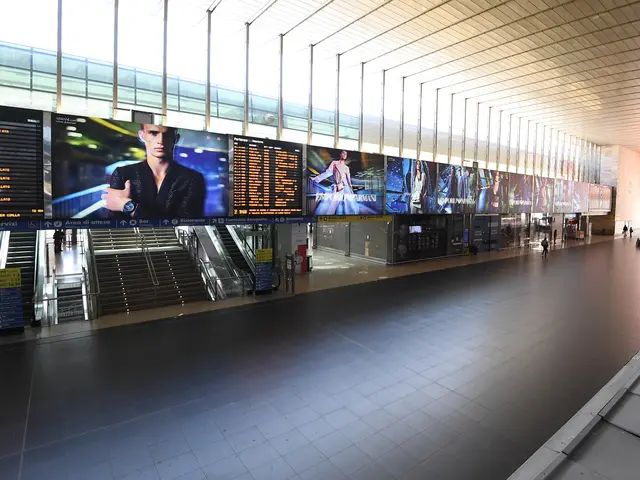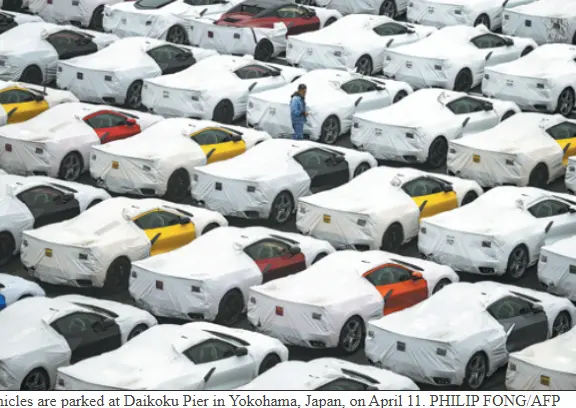Editor's note: Italy has been in lockdown for two weeks to contain the novel coronavirus pandemic. Eric J. Lyman, a freelance journalist and frequent contributor to Xinhua, reviews the two weeks in Rome where everyone's hair is starting to look unkempt but the resilient people has begun dreaming of its post-coronavirus future.
by Eric J. Lyman
ROME, March 25 (Xinhua) -- Two weeks in, the total lockdown in the Italian capital has gone from being an inconvenience to the new normal.
As the number of new infections mounts each day, people locked away in their homes are slowly beginning to rely on virtual connections with those close to them, replacing what until a short time ago would have been relationships based on proximity. They wave at neighbors from their windows, and they fantasize about what they'll do once the lockdown is over.
Rome has not been hit as hard by the coronavirus outbreak as cities in the northern part of the country. Of the nearly 55,000 active cases of coronavirus in Italy reported as of late Tuesday, around 1,300 are in the city of 4.3 million.
Still, it is hard to find people out on the streets in Rome. For the most part, residents are only allowed to leave their homes to perform "vital" tasks, such as going to the supermarket to buy food, to a pharmacy, to keep a medical appointment, or for work in a small handful of vital sectors.
Most of those who are out have their faces covered by masks. With barbershops and beauty salons closed, everyone's hair is starting to look unkempt. The grey roots are showing along the scalps of people who normally dye their hair. Fashion choices are uncharacteristically utilitarian.
They also keep their distances while speaking to a reporter.
"Yes, of course, it's strange ... nobody likes being under lockdown like this," Angela De Rossi, a native Roman mother of two hurrying home with two bags of groceries, told Xinhua. "My parents live 500 meters from my apartment but I had to give them my iPad so they can see and talk to my children, their only grandchildren. I have to leave the room sometimes because it makes me cry to see how much both sides reach out, wanting to hug the other."
Kelly Medford, an artist from the United States who has lived in Italy for 16 years, says she hasn't seen her boyfriend Fergal McNally, an Irish-born English teacher and part-time creative writer, since the lockdown began.
"We spend at least an hour a day on the phone," Medford said in a telephone interview. "Fergal sends me stories he writes and I read them and we discuss them. It's better than nothing. But it's a weak substitute for actually being together."
Elizabeth Ramborger, who works as a consultant for Rome-based United Nations Organizations, has lived in the same apartment in Rome's vibrant Testaccio neighborhood. She said there were neighbors she used to pass in the street with a slight nod or smile. Now many of them are part of an informal network of people of all ages in a dozen or more apartments who enthusiastically smile and wave when they see each other at their balconies or windows.
"It's lonely inside, but one good thing is that this lockdown is also creating a feeling of solidarity between all the neighbors," Ramborger told Xinhua. "I think that when it's all over we should all get some pizzas and drink wine together at Piccolo Alpino, the pizzeria on our street."
Ramborger isn't the only one daydreaming about the first days after the lockdown is lifted. Agnes Crawford is a British-born tour guide now living in Rome. She said she has been talking with friends about what they'll do once they are given the right to venture outside their apartments just for the sake of going outside.
"It may be masochistic to think so much about what I want to do after all this," Crawford said in a telephone interview. "But I keep thinking how much I'd like to take a very long walk along the Appian Way," referring to an ancient stone road that once connected Rome to Brindisi, a city in southeastern Italy.
"It might be a while before all the museums and restaurants re-open," she said. "But I'll walk as far as I can on the Appian Way and then take the train back."
Mario Fornella, an architect who grew up in Rome and then moved back last year after a decade in London, told Xinhua he has more tactile desires.
"I want to go and hug and kiss my elderly parents, who I haven't been able to visit in two weeks," he said, returning home from picking up pharmaceutical prescriptions for his parents, which he will leave on their doorstep. "Then I think I might go around hugging and kissing everyone else I see. I have to make up for all the time I lost under lockdown."
 简体中文
简体中文















